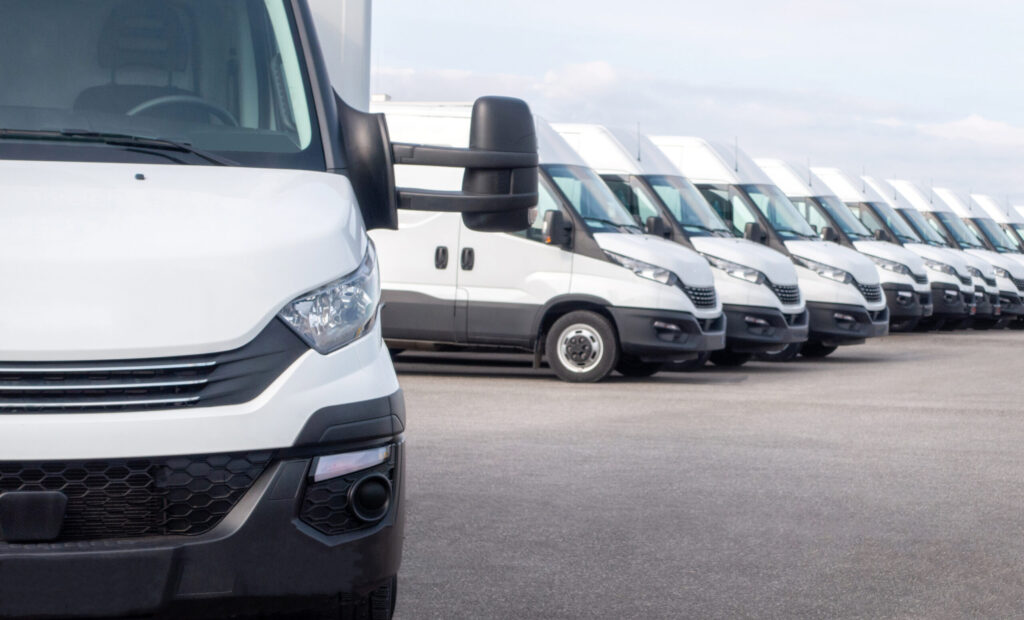Navigating Commercial Fleets in Alberta: A Business Owner’s Guide

The fleet service industry is growing rapidly today. It’s expected to grow from $13.78 to $28.66 by 2022. How is this possible? The many benefits fleets provide to businesses are one reason why it’s growing so quickly. For some of those benefits that your company can reap from a fleet to handle your shipping needs, read on!
What is classed as a commercial vehicle?
In Alberta, a commercial vehicle is defined as a vehicle used for business or commercial purposes rather than private, personal use. This classification is determined based on factors such as ownership, use, and the vehicle’s size or weight.
What is a Commercial Fleet?
A commercial fleet refers to a group of vehicles owned by a company that is used to support its business objectives. fleet cars are the basis of commercial fleets.
They can be leased or owned by the business operating them. Commercial fleet vehicles can include trucks, cars, buses, and vans as well as SUVs.
Commercial fleets can vary in size, from small vans that work construction jobs to large ones with thousands of vehicles.
Types of Commercial Fleets
There are many types of commercial fleets, and they are used by different kinds of businesses.
There are many companies that operate commercial fleets, including plumbing companies, and electrical companies.
You can have one vehicle type, or you can have a mix of many makes and models. It is simpler to maintain a commercial fleet with one type of vehicle. However, it can be difficult to find specialized vehicles for certain tasks.
Complying With All Fleet Laws
Alberta requires that vehicles parked on public roads have valid insurance and a Vehicle Register Certificate. You must have a vehicle that is registered in Alberta.
Commercial Fleet Registration in Alberta
A vehicle can either be a motor vehicle like a car or truck or a non-motorized vehicle like a trailer.
You won’t be able to renew your vehicle registration in Alberta if you have outstanding fines. Pay your fines online first, and then you can proceed with your Alberta vehicle registration renewal online.
Renew Your Registration Online Now
Buying Or Leasing a Commercial Fleet
Commercial fleet management also includes deciding whether you will buy or lease your vehicles.
If you buy the vehicles outright, your business will be responsible for maintaining a good working order, maintaining government-mandated paperwork, guaranteed compliance, verify that repairs are completed correctly and promptly.
This is an upfront cost that can be significant for your business.
On the contrary, leasing the vehicle can simplify many of these variables and sometimes even eliminate them.
Leasing a commercial fleet means that the leasing company handles all maintenance, paperwork, and compliance.
While you’ll pay a premium to use this service, your company won’t be required to spend huge amounts of money as soon as the vehicles are delivered.
The difference between commercial vehicles and fleet vehicles
The vast majority of commercial and fleet vehicles are the same, with a few key differences.
Although all commercial vehicles can be part of a fleet of vehicles, commercial vehicles usually transport large numbers of people or significant cargo. A large tour bus, for example, is a commercial vehicle because it can transport more people than 50. Because most busing companies own several large tour buses, it is also considered a fleet vehicle.
Company cars can also be considered fleet vehicles since they are often part of a larger fleet that many employees use. Technically, a company car is not considered a commercial vehicle. However, it can be used by one individual for business purposes but not to transport large numbers of people or pallets.
Benefits of Having a Commercial Fleet for your Business
It’s Cheaper
Many companies choose to use a fleet of trucks for their shipments because it is more economical than owning your own transport. You have to pay the driver’s salary and benefits, as well as the maintenance of all the equipment. If your shipment is not large enough to fill a truckload, a fleet can be a cost-efficient option. If you don’t require a truck, you can save money by using a fleet with less than full truckloads.
It’s More Time-Efficient
Asset-based fleets are specialized in the efficient and effective transportation of goods. These fleets employ skilled dispatchers who can plan the routes of their drivers in a way that maximizes pickups and delivers to their customers’ requirements. You won’t have your cargo late if you use a fleet to transport it. Instead, your cargo will arrive on time.
Enhanced Customer Experience
Your business will benefit from a commercial fleet, but so will your customers. Advanced technology and logging equipment enable fleets to give status updates to customers about where their shipments are. This transparency will keep your customers happy and increase their likelihood of returning business.
Registration Requirements
Commercial vehicle registration in Alberta is required for all commercial vehicles operating within the province. The specific process may vary depending on your location. For details on registering commercial vehicles in Chestermere, visit our page on commercial vehicle registration in Chestermere. Similarly, if your business is located in Strathmore, you can find more information on commercial fleet registration in Strathmore.